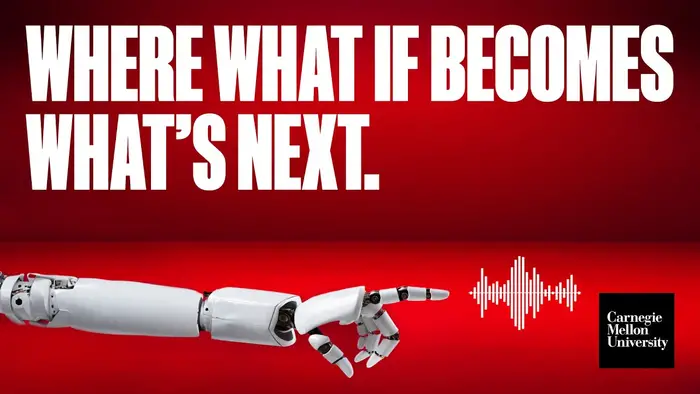Latest Stories
More Resources
Work That Matters
Researchers at CMU are working on real world solutions to the biggest challenges.
Read more about the latest discoveries.(opens in new window)
Carnegie Mellon University contributes to and supports The Conversation, a nonprofit independent international news organization dedicated to unlocking the knowledge of academic research expertise for the public good. Read stories written by Carnegie Mellon experts for The Conversation.
Carnegie Mellon University Experts are available to provide analysis and commentary on a wide variety of news and research topics.
Podcasts
Explore stories from across Carnegie Mellon University, where our experts lead us through a diverse set of topics — from deep dives in artificial intelligence to the blurred intersections of the arts and technology.





